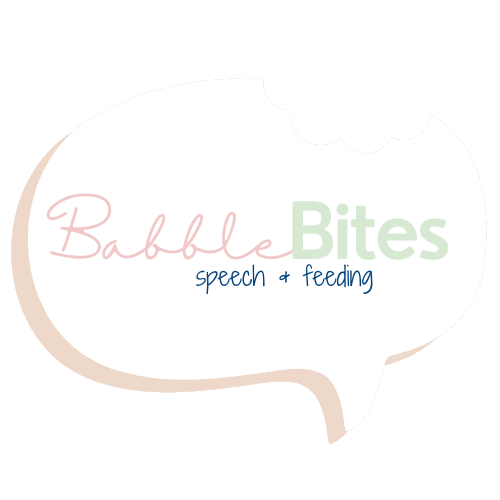How to Get Your Baby to Say “Dada”
Every parent looks forward to their baby’s first words, and it’s even more exciting when they start saying your name! “Dada” is a common first word, as it has one of the earliest developing sounds, /d/, and is a repeated syllable (da-da), which is typically the easiest word form for babies to say. Many babies start to babble “dada” or “dadadada,” and it still takes some time before they say “dada” meaningfully (i.e. they are referring to “dada” specifically, rather than vocal play).
Here are some quick tips to encourage your little one to say “dada” meaningfully.
Frequently label yourself (or your partner) in narration throughout the day while pointing to yourself/them.
Describe what you are doing throughout the day to your baby, and label yourself as dada, or talk about what “dada” is doing. For example, “Dada is making your snack,” “Dada has the ball,” “It’s dada’s turn,” “Dada is holding you.” Point to yourself or you partner (whoever goes by “dada”) to help make the connection between the word and the person even stronger.
Play peek-a-boo.
Playing “find dada” with peek-a-boo is a great way to repetitively label yourself in a fun and motivating way. Hide behind a blanket, pillow, or your hands and say, “Where’s dada?” When you pop back out say, “Here’s dada!” Eventually, you can pause and wait for your child to fill in the word, “dada".” For example, “Where’s….” or “Here’s…”
Label yourself while your baby is looking at you.
When your baby babbles “dada,” point to yourself (or your partner) and say, “That’s right, I’m dada!” or “That’s right, there’s dada!”
Try nodding, smiling, and pointing to yourself or your partner while you repeat back, “dada!” Imitating them can help encourage them to say it again. You can also respond as if your child did say “dada” meaningfully by coming to them, looking at them, talking to them, asking what they need, and smiling. This reinforces them to say what they just said, and to learn what reaction will come when they say that sound and learn it has meaning!
Say “dada” while using parentese.
Research has found that using parentese, or infant-directed speech, which is when adults use a sing-songy rhythm with higher-pitched tone of voice, helps bring your baby’s attention to your voice. This then increases their attention to the words you are saying, making it easier for your child to learn new words because they are paying closer attention to the words, which is necessary in order to start using words.
Create verbal routines or songs that use “dada.”
Verbal routines are phrases and sentences you say every time you’re doing a routine action during the day with your child, and is a simple and effective early language strategy to help increase your baby’s understanding of and use of words in meaningful contexts. Every time there is a daily routine with dad, try to incorporate the word “dada,” which will help your baby associate the word “dada” with you. For example, “Dada puts your shoe on, shoe on, shoe on, dada puts your shoe on everyday,” “Night night [baby’s name], Night night dada,” “Good morning dada, good morning dada, good morning dada!” Eventually, you can use a cloze statement by leaving off the word “dada” and see if your baby can fill it in!
Be consistent with using these tips and soon your baby will be saying your name! Happy Father’s Day to all the dadas out there!
Learn about how to encourage your baby to say more first words by clicking here!
Follow us on Instagram for “bite-sized” information on language strategies:
Click below to pin this post to Pinterest to save for later and share!
This website and information on this blog post is provided for educational purposes only. It is not meant as medical advice, intended to replace a speech-language assessment, therapy from a speech-language pathologist, or serve as medical care for a child. It is recommended that you discuss any concerns or questions you might have with your speech-language pathologist, pediatrician, and medical team, and develop an individualized team plan specifically for your child.



